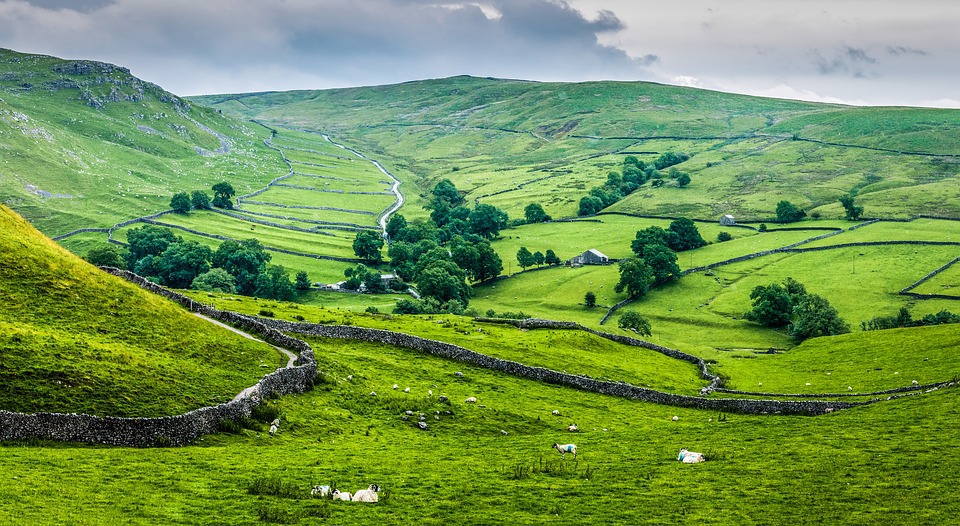
Tracking the Development of Regional Language
The idea behind the Yorkshire Historical Dictionary is that it tracks the development of regional language in Yorkshire and provides a useful reference guide for historians studying medieval manuscripts.
The dictionary is also a fascinating reference for anyone interested in learning more about the dialect of this English county.
Yorkshire has a poetic dialect that is rich in interesting expressions that were strongly influenced by foreign people travelling across trade routes which passed through the region.
Dr George Redmonds had amassed the collection of words over 60 years, taking the words from various sources, including court records, tax rolls, diaries and letters. He had kept them carefully catalogued on small postcards.
In addition to his immense knowledge of the Yorkshire dialect, Mr Redmonds was also an expert in Yorkshire place names and the Yorkshire surnames.
The collection is not only a record of the Yorkshire dialect but also gives readers information about the region and the lives of the people of Yorkshire. The document helps us track Yorkshire’s history through its language development.
Yorkshire Dictionary Development
The Yorkshire Historical Dictionary links each word or expression to a historical document dated from 1100 to 1750. The terms originate from many different industries and include words related to agriculture, farming, plants, animals, the Church, coal mining, specialist crafts, clothing and the textile industry.
The Borthwick Institute for Archives managed the project from start to finish. Institute archivist Alexandra Medcalf said: “It’s a huge piece of work [and ] really important because it it full of information about the different parts of Yorkshire.
“You can’t look back in history and understand it without understanding the language those people would have used…. different places in Yorkshire have a very strong pride in the way that they speak“.
Changing Dialect Reflects Societal Shifts
When industries change over time, the words associated with those industries also change. Terms die out if they are no longer used and needed. The Yorkshire-born poet Ian McMillan and the self-styled ‘Bard of Barnsley’, who helped to publish the dictionary, said:
“I’m always excited and keen to do anything to do with dialect. [These dictionaries] instantly transport us back to a time when the words were in common parlance. The people that spoke these didn’t think they were speaking in dialect, they were just talking.
The great job they’ve done with this dictionary is make it real, so these things are not ephemeral anymore. If you don’t record these words then they’ll go. Once the things that these words were about – mining, cotton, farming – start to change, and sometimes disappear, then the words will go too.”
From Shoe Box to Published Document
Dr Redmonds had begun transcribing his collection of Yorkshire words to take them from postcard notes gathered in shoe boxes to a structured document ready for others to read.
After his death in August 2018, the digital project began. Funded by the Marc Fitch Fund and managed by the Borthwick Institute for Archives, the work has now been published online by the University of York and will be published as a hard copy later in 2019.
The online Yorkshire dialect dictionary can be searched by users looking for certain key terms, while it also contains information about the places that shaped the Yorkshire vocabulary and the source materials.
Yorkshire Dialectal Terms
The Yorkshire Historical Dictionary is full of interesting expressions and terms. Many of these will be recognised by people today, such as ‘ginnel’ and ‘brass’ while others will be obscure to the modern Yorkshire ear. Some Yorkshire dialectal terms included in the dictionary include:
day gate – sunset
ware – worse
wrangwise – incorrectly
reins – kidneys
yower – sheep’s udder
halling – tapestry
laking – to play
bufflehead – a fool
quy-stirk – heifer (young cow)
beast leech – a cow doctor
ale draper – beer seller
poot – young game bird
sackless – innocent
bray – to hit (someone or something)
jannock – genuine or fair
ginnel / snicket – alleyway
brass – money
quishing – cushion
sallet – a helmet that curves outward at the back
whisk – woman’s neckerchief
rackan crook – hook for hanging pots over a fire
fettle – to put in order (e.g. in fine fettle)
Although the Yorkshire Historical Dictionary is currently only available online, we’re looking forward to buying a hard copy at the end of 2019, when it should become available in book shops.
Share your thoughts on the Yorkshire Historical Dictionary
Yorkshire readers, have you heard of these terms for the new dictionary? Do you have any more favourite Yorkshire expressions to share?
Have you visited Yorkshire? Did you learn any new terms? Did any words confuse you?
Did you notice the Yorkshire accent?
What are your favourite parts of Yorkshire?
What other slang expressions or dialect terms do you find interesting?
Let us know in the comments!
